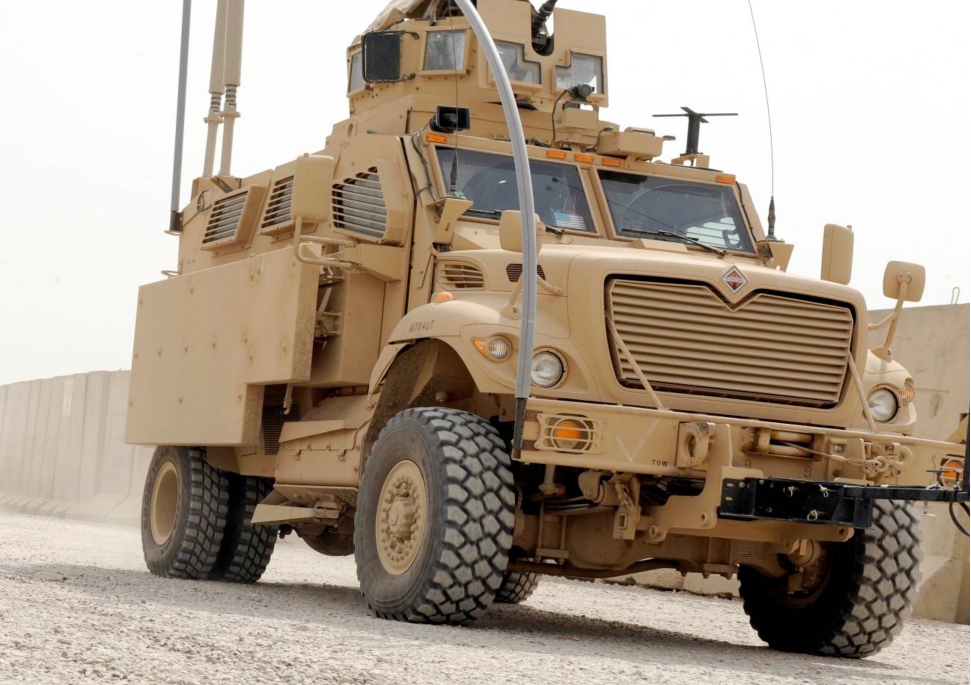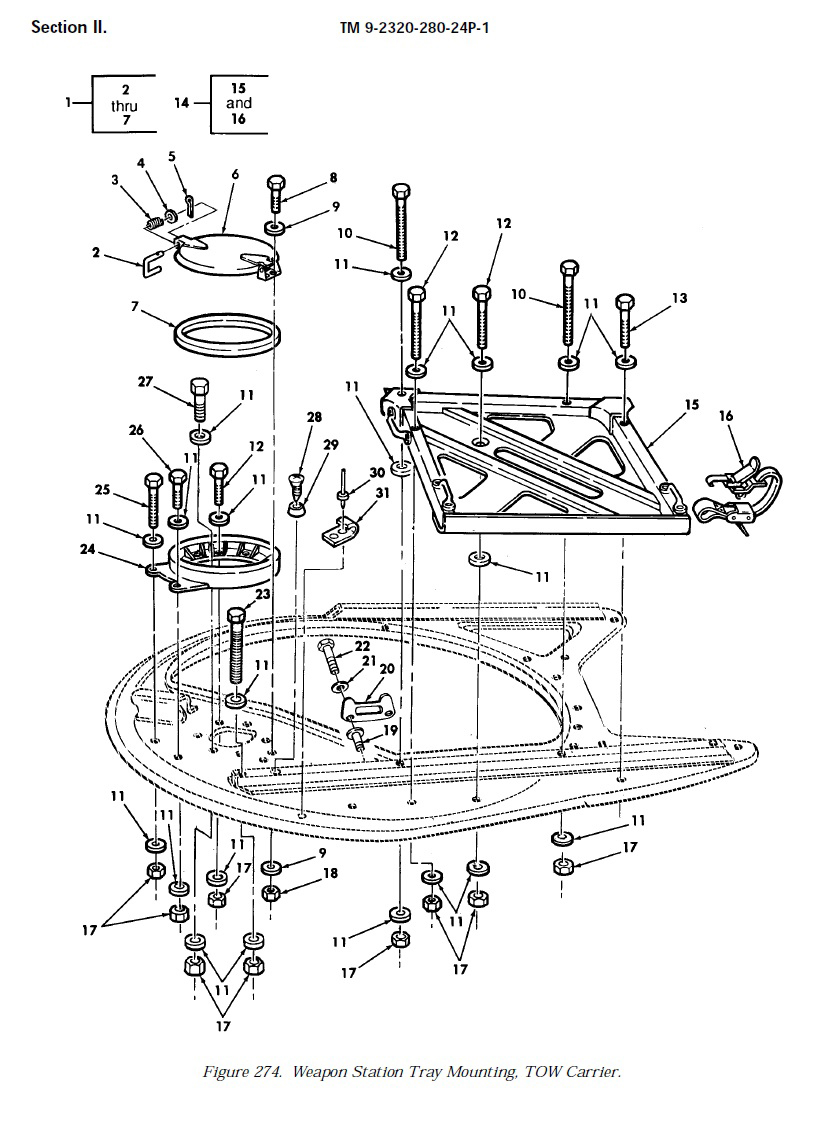
Imagine a military without fasteners, it would just fall apart.
Fasteners are an integral part of the U.S. Military; in fact every soldier’s daily life depends on the availability and reliability of them. Each time a military unit deploys they pack up a myriad of equipment and supplies for the purpose of not only supporting the mission at hand but to provide every imaginable item to support daily life. These supplies and equipment are completely consumed, maintained, repaired or reused and many of them would not exist without fasteners.
Lets look at the different ways the Defense Department consumes fasteners.
Repair and Maintenance
Every piece of equipment has a lifetime which may be extended with scheduled maintenance. This maintenance can be performed by the military or through an appointed government contractor. Billions of dollars worth of government equipment are in some state of repair or overhaul at any given time. Repair or maintenance can occur on site, at local depots, or be shipped to one of the 20 major DOD repair depots in the U.S.
Figure 1. This diagram (part of a much larger technical manual) is used to illustrate the parts breakdown for a very specific piece of equipment. Each labeled item has a very specific set of rules, such as which are to be repaired or replaced. There are 24 unique fasteners listed in this illustration which are used on other assemblies. The NSN 5305-00-725-2317 in this list is used on 15 other vehicles including the HMMWV model M1045A1. General guidance for maintenance and repair of military equipment are described in technical manuals.
When items are overhauled, parts are either refurbished or replaced. One way the military supplies parts is in kit form. For example the NSN 2590-01-305-2166 is a parts kit for a winch, it contains 9 different types of screws, 6 different nuts and washers and two different types of cotter pins. The kit sells for $7,350 each. Repairs at military depots may use these kits or pull from a much larger local stock of fasteners kept in their stock bins.
Department of Defense
The four major agencies operating under the Department of Defense have a constant need for hardware such as screws, nuts, bolts, washers and rivets. Agencies included are the Defense Logistics Agency, Air Force, Army and Navy (which includes the Marines). There are currently 1,438 contracting offices which issue solicitations through these 4 agencies.
The Defense Logistics Agency (DLA) is the top agency for purchasing fasteners, issuing the majority of the solicitations. Typically DLA buys are shipped to one of their 25 distribution sites located around the world or direct to the end user. Repair depots (the actual consumers of these items) can then replenish their stock by sending requisitions to the DLA pulling from these distribution centers. Sometimes the depot or base will create and post a solicitation for the item.
To find DLA solicitations, set up searches using standard classifications such as the Federal Supply Class (FSC) . Classes of interest for fasteners are 5305, 5306, 5307, 5310, 5325, which are screws, bolts, studs, nuts & washers and fastening devices respectively.
Prime Manufacturers
Although the Defense Department issues millions of solicitations direct to vendors for needed parts, for major systems they prefer to buy through prime manufacturers. These companies will subcontract to thousands of vendors, that supply the parts needed to make and support aircraft, engines, ships, tanks, vehicles and communications equipment. Familiar names like, Boeing, Lockheed, Motorola and Pratt & Whitney are all prime defense contractors.
These companies are prime targets for people who wish to sell to the defense department, but abhor the bureaucracy of government sales. Prudent contractors can search DOD procurement history to find systems that contain components which they can supply. Vendors can contact prime contractors directly and offer their products. Many fastener suppliers already possess skills and familiarity with specifications of hardware used in major military systems or equipment.
Some companies who sell through prime contractors may also sell spares directly to the military. A company may have produced a screw for Lockheed, who in turn used that screw in an end item sold to the military. When the Defense Department orders more of that screw, it may appear under a Lockheed part number, not the original manufacturer’s. This is useful information when searching for solicitations to sell directly to the DOD.
Direct Sales to End User
There are military bases everywhere, and sometimes demand for items arise, which must be purchased immediately. These are designated as a emergency buys. There are currently over three million government/military personnel who possess a government credit card which allow them the ability to purchase items without issuing a public solicitation under the right circumstances.
How They Buy
There are a number of ways parts can be purchased by the military.
Direct Procurement – The Defense Department issues a request for competitive quotes directly from manufacturers. This can be issued through the Defense Logistics Agency, or from the individual agency with the requirement. Contractors can search for these solicitations, determine if they can manufacture the parts competitively and submit a bid.
Prime Contracts – Parts are purchased through the prime contractors, which are often supplied by subcontractors.
Credit Card – For urgent purchases, agencies can use a credit card to buy parts directly from manufacturers or distributors.
Knowing who and how they buy is the first step toward selling to the Defense Department. Companies can register to sell directly to the DOD, or sell to companies who have already won defense contracts. Either way, the government can be a consistent source of business for U.S. companies.
Other Sales Opportunities
Foreign Military Sales (FMS) is a program where U.S. Defense systems and services are sold to ‘friendly’ countries. Brokers both foreign and domestic are constantly sourcing items (part numbers /NSN’s) for many of these older legacy systems. Seeking out these suppliers or advertising your capabilities can also help increase your fasteners sales.
BidLink.net is a provider of defense industry information for contractors worldwide. This data includes millions of defense contracts, procurement history, part numbers and vendor details. This unique combination of resources allows BidLink to monitor and extract important information for the defense contracting industry. BidLink.net, based in Washington, D.C., provides bid consolidation, searching and notification services, as well as part number (NSN) lookup to many military activities and thousands of private companies around the world.
This article was written exclusively for Fastener Journal. http://www.fastenerjournal.com
Tweet
